What’s more? You could not have picked a better time to become a hacker. The Bureau of Labor Statistics projects that the job outlook for Information Security Analysts, which includes ethical hackers, is set to grow by 33% over the next decade. This sort of boom is unparalleled by most other industries. Lastly, hackers earn highly rewarding salaries for their work.
The average salary for an ethical hacker in the U.S. is over $90,000, with an additional $20,000 in bonus pay typically available, according to Glassdoor.
All of this probably sounds great, but you may be unsure of where to start. Below, we will cover all the steps you need to take to become a hacker, we’ll discuss how to do it in as little as one year and show you what sort of work you can find as an ethical hacker.
What is a Hacker?
To put it simply, hacking is any activity that intentionally weakens the security of a user account, an application, a device, or even an entire network. However, just how a hacker accomplishes this can be done in various ways. For instance, a hacker can simply brute force their way into a network by continuously attempting to find the correct access credentials. On the other hand, it can also involve elaborately designed programs that inject themselves onto user devices and steal information.
Hacking can be split into three major disciplines: white-hat, black-hat, and gray-hat hacking. The end goal of a hacking activity is the main difference between these disciplines. Black-hat hackers are the type commonly seen in pop culture. These are hackers that break into systems, without permission, in order to steal money or information. White-hat hackers are the complete opposite. These hackers are hired to break into systems in order to help system administrators discover and repair vulnerabilities. Another term for a white-hat hacker is an ‘ethical hacker’. Last is the gray-hat hackers. Despite sounding like a hybrid between white and black-hat hackers, gray-hat hackers are more like white-hat hackers that don’t ask for permission. In other words, they hack into systems for no tangible purpose or gain. They may simply do it for the challenge.
Regardless of what a hacker intends to do, they generally possess a skill set that is shared by all successful hackers. Firstly, hackers are well-versed in programming concepts and at least one programming language. The same can be said for their knowledge of operating systems. Hackers need to know the ins and outs of at least one operating system. To be a master hacker, however, one needs to combine technical knowledge with creative problem-solving. Hackers are seldom told how to complete a task, just that they must complete it. This is where a hacker’s creativity shines.
How to Become a Hacker in One Year

Becoming a hacker in just one year may sound like a tough task, but with the right skills, experiences, and certifications, it is indeed very possible. All it really takes to become a hacker is learning an operating system, studying a few programming languages, and developing a hacker mindset – more on this below.
Learn LINUX/UNIX
LINUX is not one operating system, but a family of open-source operating systems derived from the UNIX operating system. There are several reasons to pick up a LINUX operating system. Firstly, they are highly customizable which means you can adjust your system exactly to your requirements and preferences. Secondly, many hacking tools and programs are designed for LINUX. While it is possible to find alternatives on another operating system, it makes your life easier to work with LINUX. Lastly, despite being an open-source software (which means the code is available for free to all), LINUX is still more secure than other OS. Since LINUX is more secure, large networks and servers will often be LINUX-based. As a result, learning the ins and outs of this group of operating systems will be essential for hacking a wide variety of computer systems.
Become Fluent in Programming
Programming is an essential skill for any hacker. But, before becoming proficient in a programming language, one should learn the fundamental concepts of programming (such as data types, sequences, and operators). These concepts are found across most languages, so getting a good grasp on them will make the task of learning new languages much easier.
There is no one-size-fits-all core language, so you will likely have to learn multiple languages in order to carry out the tasks of a hacker. The C programming language is important to learn as LINUX is built entirely using C programming. Java is another language that is heavily used in hacking tools. However, it may not be the best idea to jump into those languages if you have little to no programming experience. Below, you will find several starting points for programming.
Despite being mainly used for web development, all kinds of programmers often start by learning to write HTML and there is a good reason for this. HTML is the backbone of all active web pages on the world wide web; it tells an internet browser what words or images to display. Another easy language to pick up is CSS. This language is used to stylize or design all the data on a webpage.
While neither of these languages is used for hacking, they are very quick to learn and will help you understand the structure of web pages. From there, you can go on to learn PHP. This is where things get interesting. PHP connects a webpage to a back-end service. To put them all together in one example, HTML creates a text box where you enter your name, CSS designs it, and PHP stores the name that you enter. Learning these languages will be especially important if you aspire to be an internet hacker.
To make the jump into more versatile and serious programming languages, Python is an excellent first step. The code is clean and quick to learn, especially if you have picked up on the common programming concepts. Python is used to write programs for tasks ranging from data analysis to making applications and even hacking. What’s great about Python is that it will make your jump to C programming and Java that much easier.
Learn Networking Concepts
Learning how networks are set up and how devices communicate with each other is a crucial step to complete before you can learn to hack. You might be surprised to find that there are many ways a network can be installed and organized. Learning networking concepts will familiarize you with the key points in a network and the good and bad practices that come along with setting up a network. This knowledge is what allows hackers to identify and exploit vulnerabilities.
If you have minimal knowledge or expertise with networking, then understanding your own home network is an excellent first step. Wireshark is a great tool that’s often used by hackers to track communications between devices. This program visualizes how devices in your network interact with each other and how they interact with other networks too.
It might also be a good idea to get certified in various networking concepts. The cyber security specialist program at ICHOS helps graduates earn several key CompTIA certifications. These certifications will make the job search much easier.
Understand How to Operate Anonymously
A smart hacker is an anonymous hacker. Part of becoming a professional hacker involves learning to leave no trails. While anonymity is generally wanted by those performing illegal tasks, it is also a very important skill to have as an ethical hacker too. Ethical hackers must test every facet of a system’s security. Therefore, testing whether an intruder can be detected or tracked is also valuable information for system administrators.
Identify Vulnerabilities
Vulnerabilities are weak points that can be exploited to hijack a system. Hackers often use capable programs to scan for vulnerabilities. This is also known as penetration testing. Other hackers, when working with open-source programs, opt to manually scour through the code to find issues that can be exploited. This is where being familiar with several computer programming languages will help.
One of the best ways to learn to hack is to practice. Setting up some personal hacking projects is a great way to start. In this case, you can practice identifying vulnerabilities by testing your own home network or free open-source programs. Additionally, you can debug open-source software code to practice patching up vulnerabilities. For a real challenge, try reverse-engineering closed-source programs to find vulnerabilities.
Read Up on Hacking Literature
Immersing yourself in hacking literature will kickstart your acquisition of basic skills. Whether it be networking, programming, or more specific hacking concepts, you can find literature on almost all aspects of hacking. Reading up on hacking literature will also familiarize you with the lingo, which will come in handy when making connections with other hackers.
This sort of self-education can also help break down the barrier of entry to a hacking career. You may find that becoming a hacker is not as difficult as you previously thought.
Interact with Hacking Communities
A strong community of real hackers is invaluable when it comes to learning to hack. No matter how much media you consume, nothing compares to the connections you can build with other hackers. These communities will not only give you the correct hacker attitude but may one day be very beneficial for your job search.
Look for some online forums or communities to join on platforms such as Discord, Telegram, or even Facebook. Discussing with other hackers will also help you get a good idea of the whole hacker culture today. Learn hacker values.
What Skills Are Required to Become a Hacker?

Problem-Solving
Strong analytical and reasoning skills are necessary for taking on the tasks commonly faced by hackers. For instance, when working with large and complex systems, it takes a keen eye and a logical mind to spot vulnerabilities. But that’s only half the battle. A penetration tester, for example, would have to come up with several methods to exploit those vulnerabilities.
Technical Aptitude
To perform well, hackers need to combine knowledge from several different areas of expertise. A hacker that is proficient in programming but knows nothing about networking concepts will not get very far. Therefore, hackers need to be proficient in networking, programming, operating systems, and more.
Curiosity
The best hackers question everything and hardly accept things as they are. This goes hand in hand with knowing all the ins and outs of the systems and languages they work with. After all, how else can a hacker be certain that they’ve done their job without exhausting their entire arsenal of tools and expertise?
Imagination
As previously mentioned, hackers need to solve problems constantly. A strong imagination and the ability to think creatively are indispensable skills when it comes to problem-solving. For example, with an imaginative mind, a hacker can visualize the structure of code and therefore find vulnerabilities intuitively.
Hacking Niches You Can Learn for Free and On Your Own

Network Hacking
Network hacking involves collecting information regarding the security of a network, gaining access, and creating unauthorized connections to the devices within. Keep in mind that just as with all ethical hacking niches, this niche is purely focused on bettering a network’s security rather than exploiting it for personal gain. This is exactly the sort of work that is done by penetration testers.
Network hacking is a prominent form of hacking that many have likely experienced. Just before the turn of the century, a network hacker got into NASA’s network, gained access to several devices, stole data and software, and ultimately caused the network to shut down for three weeks for repairs. Ethical network hackers, unlike the one in this example, attempt to hack networks in order to bolster their security and prevent attacks such as this one from occurring.
If network hacking sounds like your cup of tea, there are a variety of free courses to choose from to get familiarized with the concepts and practices of network hacking. One such course is the Penetration Testing, Incident Response, and Forensics course offered by IBM on Coursera. Further down the line, you may consider becoming certified in network security from an accredited institute such as ICOHS.[c]
Web Application Hacking
Web application hacking is another highly common niche. Web applications are programs that run on the internet. For example, email services such as Gmail or Yahoo are considered web applications. As you might expect, these web applications often hold important user information, which makes them susceptible to hackers.
Web application hacking is a highly prominent niche. For example, in 2011, Sony’s Playstation Network was hacked, exposing the details of 77 million users. This attack was one of the largest data breaches in history. Ethical hackers in this niche work on web applications by finding and patching up vulnerabilities.
Despite its challenging nature, web application hacking can be highly rewarding. If you’re interested in learning more about this niche, then check out this free course on SQL Injection Attacks. This course only teaches one form of web application hacking, but it is the most used attack.
Malware Analysis
Malware is any type of software that’s designed specifically to take control of the device it’s installed on, disrupt its function, or steal its data. These are often referred to as viruses, as they spread much as viral infections do.
Everyone reading has likely run into malware themselves. However, the most destructive malware known is the Mydoom software, which caused an estimated $50 Billion worth of damages (adjusted for inflation). This software would spread itself between computer systems to steal data and remotely use them for various purposes (typically for DDoS attacks). A $250,000 reward was even offered to find the developer, yet they were never found.
Analysis of malware is an exciting and highly rewarding niche. Check out the Fundamentals of Computer Hacking to get into Malware analysis. This free course gets into the various forms of malware software and how they’re used by black-hat hackers.
Frequently Asked Questions
What’s the difference between a hacker and an ethical hacker?
An ethical hacker is just one type of hacker. It’s also referred to as a white-hat hacker. The key idea behind ethical hacking is that it is done to find and fix security vulnerabilities, with permission, in order to prevent malicious hackers from abusing them for their own gain.
How much money do hackers make?
Hacking can be a very rewarding field to work in. According to Glassdoor, hackers make $92,411 annually on average. However, they also earn an additional $23,154 in additional pay annually. Bonus pay can include payments such as commissions and bonuses. The bottom 25% earn around $65,000 while the top 25% bring in over $200,000 annually.
Can kids learn how to hack?
Absolutely. Much like with programming, kids can also learn how to hack using a variety of free courses and practice programs tailored specifically for kids. In fact, anyone can and SHOULD learn to hack in order to protect themselves in an increasingly digital world.
Conclusion
Hopefully, by now, you are more confident about how to become a hacker. Start learning how to hack today using the various methods we’ve discussed. If you’re serious about a career in hacking, then consider training in cyber security today with ICOHS, earn the key certifications needed for a career in hacking and cybersecurity, and put yourself in a great position to find a job.










